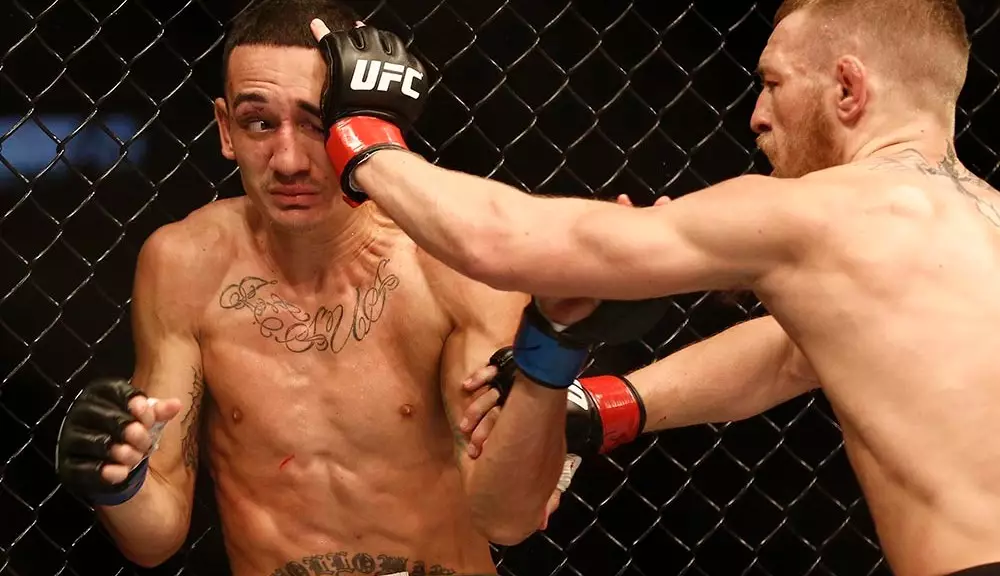In the world of mixed martial arts (MMA), rivalries often flair where the stakes are high and the accolades are significant. One such rivalry has recently reignited as Conor McGregor defended his former opponent Max Holloway, who is set to challenge the reigning featherweight champion Ilia Topuria at UFC 308. This matchup, taking place at the famed Etihad Arena in Abu Dhabi, has sparked interest not just for the fight itself, but also for the loud exchanges that precede it—messaging that illuminates the complex layers of competition in the UFC.
Max Holloway’s career is a tale of resilience and evolution. Following a unanimous decision defeat to McGregor in 2013, many would have written off the young fighter. Yet, Holloway, a future two-time featherweight champion and the current “BMF” titleholder, embarked on an astonishing 13-fight winning streak post-McGregor, highlighting a remarkable transformation. It raises the question: what does it take to bounce back from a significant loss in a high-pressure sport? Holloway’s journey provides a case study in overcoming adversity.
Conor McGregor, who has had his fair share of victories and defeats, understands the psychological toll that comes with the sport. His resounding endorsement of Holloway—“He became an all-time great after losing to me”—reveals a layer of respect that transcends their competitive history. By acknowledging Holloway’s growth as having originated from their confrontation, McGregor places significance on defeat as a catalyst for development rather than an endpoint.
Ilia Topuria’s decision to castigate Holloway by referencing the defeat to McGregor unwittingly highlights the continuous thread of rivalry that exists within MMA. This mockery was not just a personal attack but also an attempt to assert psychological dominance before the championship clash. Topuria’s statement that “When Conor McGregor beats you, forget about it” reflects an acute awareness of McGregor’s standing in the sport and illustrates the symbolic weight that such a loss carries. It showcases how past encounters can be weaponized in verbal exchanges, creating narratives that are as captivating as the fights themselves.
Yet, Topuria’s assertions also reflect a certain desperation. The need to belittle Holloway’s past indicates a fear of his capabilities and perhaps an assessment of his own standing in the hierarchy of the featherweight division. This dynamic of trash talk is as intrinsic to MMA as the bouts themselves, serving to elevate the stakes and build anticipation. However, when engaged in such banter, fighters must tread carefully; the line between confidence and overconfidence can often become blurred.
The Playground of Nicknames and Ego
In the theatrical world of MMA, nicknames carry their own weight and can symbolize the personalities of the fighters. McGregor’s christening of Topuria as “The Puppy” was more than a playful barbs; it was a significant psychological maneuver intended to undermine Topuria’s image. The ability to create nicknames during press interactions can amplify a fighter’s persona, providing further entertainment for fans while simultaneously rattling opponents.
Topuria’s retort, branding McGregor as a “fake fighter,” is indicative of the fierceness that characterizes such rivalries. Yet, it also underscores a recurring theme in combat sports: the narrative of authenticity. Fighters are often judged by the authenticity of their intentions and performances, and this can dramatically impact their legacy. Engaging in this repartee allows fighters to assert their narratives more powerfully, framing the mental warfare that often accompanies physical confrontations.
As UFC 308 approaches, the anticipation behind Holloway vs. Topuria is palpable. The storylines interwoven with personal history and rivalry fuel interest. The stakes have never been higher, with not only the championship title on the line but also a chance to settle the score amid a backdrop of warlike rhetoric.
The bout will serve as a testament not just to physical prowess but also to the mental fortitude that comes with fighting under the spotlight. Both Holloway and Topuria will walk into the Octagon carrying the weight of expectations, histories, and very personal rivalries. In the end, it’s not merely a fight; it’s a narrative loaded with ambitions, fears, and a longing for respect—amidst the echoes of past battles still resonating in the back of their minds.

